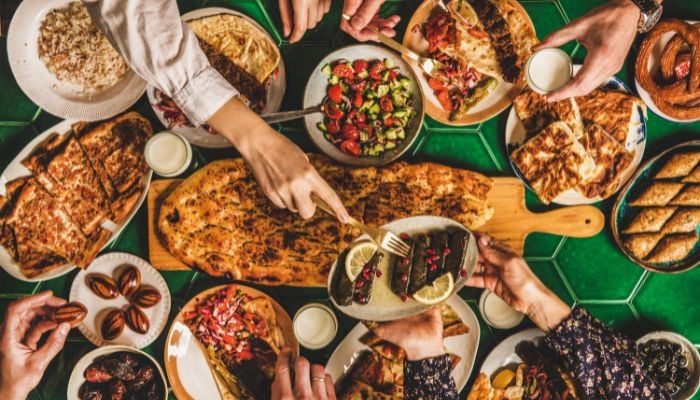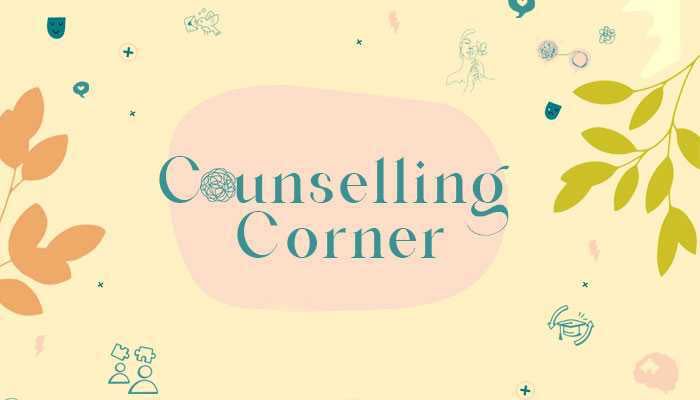'I dread hosting guests for get-togethers. How do I become more welcoming?'
"The idea of having to do all the work and entertaining people at your home is something I really struggle with," says an exhausted host
July 02, 2025
Dear Haya,
I feel like I'm a terrible host to my guests. When festivals and important occasions are coming up, I feel so anxious and dread hosting guests at my house. The idea of having to do all the work and entertaining people at your home with food and attention is something I really struggle with.
We recently had a dawat at our place for Eid, but being in the kitchen and just trying to make sure everything is done perfectly really exhausted me. In our family, there's no concept of men helping the women with any chores, so it gets really difficult for just the women to manage all the preparations.
This often leaves me feel very bitter about the idea of get-togethers and dawats at our place, as it's all so draining and frustrating. To say I despise the idea of hosting guests won't be an exaggeration because it's very taxing. Please advise how to get rid of this feeling and be welcoming towards people.
— An exhausted host

Hi!
Thank you for opening up about something many women, especially in our South Asian culture, silently struggle with. The emotional and physical exhaustion you are experiencing is completely valid. It's important to first acknowledge the weight of what you're carrying. You’re a human being who is overwhelmed and unsupported, trying to meet expectations that are deeply ingrained and often unfairly distributed.
What you’re describing goes deeper than just hosting — it’s about emotional labour, perfectionism, gender roles, and the invisible expectations placed on women. You are not a "terrible host". Your exhaustion isn’t a reflection of your character — it’s a signal from your body and mind that your emotional labour is going unnoticed and unsupported.
The bitterness and dread you're feeling are messages from within, telling you that your needs and limits are being ignored in the name of keeping up appearances or fulfilling roles that no longer feel sustainable. It’s not that you don’t want to be welcoming — it’s that unresolved burdens are standing in the way.
Let's take a closer look at your situation to see what you can do.
Feelings are signals, not flaws
There’s no getting rid of feelings. They’re not problems to solve — they're cues inviting us to pay attention to what’s going on inside. In your case, it sounds like the feeling of dread and exhaustion aren’t about a lack of generosity — they’re telling you that you’re doing too much, with too little support. it’s about being overwhelmed, unsupported, and expected to perform a role that feels one-sided and draining. Get curious about what these emotions are trying to tell you. Acknowledge them instead of pushing them aside.
Challenge the 'perfect host' narrative
What does being a "perfect host" really mean and is that expectation realistic right now? I'd encourage you to revisit the meaning of perfection. You may be holding yourself to a standard that isn’t manageable or even necessary. Hospitality isn’t about flawless execution — it’s about genuine presence. What if things didn’t need to be perfect, just good enough? What if your best — whatever that looks like on a given day — was truly enough? Redefine what hosting means to you.
Seek and allow support
Support doesn’t always have to be grand. It can be as simple as:
- Voicing your stress to family members — even if they’re not used to helping, they may not realise how much you're carrying, unless you tell them.
- Delegating some tasks to others, like cleanup or drink arrangements or anything else.
- Simplifying the menu to reflect what’s realistic for you.
- Prepping in advance so the day-of feels lighter.
- You don’t have to do it all to be a good host.
Honour your needs with self-compassion
Take a moment to reflect: what needs of yours are currently unmet? List them down. Then ask, what would it look like to honour even one of these next time? That bitterness you feel is pointing towards unmet needs — not unkindness. Start by meeting yourself where you are.
Create boundaries that protect your peace
Once you’ve identified your needs, it becomes easier to draw boundaries. Be clear with yourself — and others — about what you can and can’t take on. Boundaries aren’t barriers; they’re safeguards for your well-being.
Remember, being welcoming doesn’t mean abandoning yourself to please others. It means showing up as your full self — needs, limits, and all — and offering connection from a place of wholeness, not depletion. Many women feel they have to earn rest by doing everything first. But rest isn’t a reward — it’s a right. Taking breaks, sitting down, and saying no doesn’t make you selfish or lazy. It makes you human. Even during dawats.
Hope this helps and good luck!
— Haya

Haya Malik is a psychotherapist, Neuro-Linguistic Programming (NLP) practitioner, corporate well-being strategist and trainer with expertise in creating organisational cultures focused on well-being and raising awareness around mental health.
Send her your questions to [email protected]
Note: The advice and opinions above are those of the author and specific to the query. We strongly recommend our readers consult relevant experts or professionals for personalised advice and solutions. The author and Geo.tv do not assume any responsibility for the consequences of actions taken based on the information provided herein. All published pieces are subject to editing to enhance grammar and clarity.













